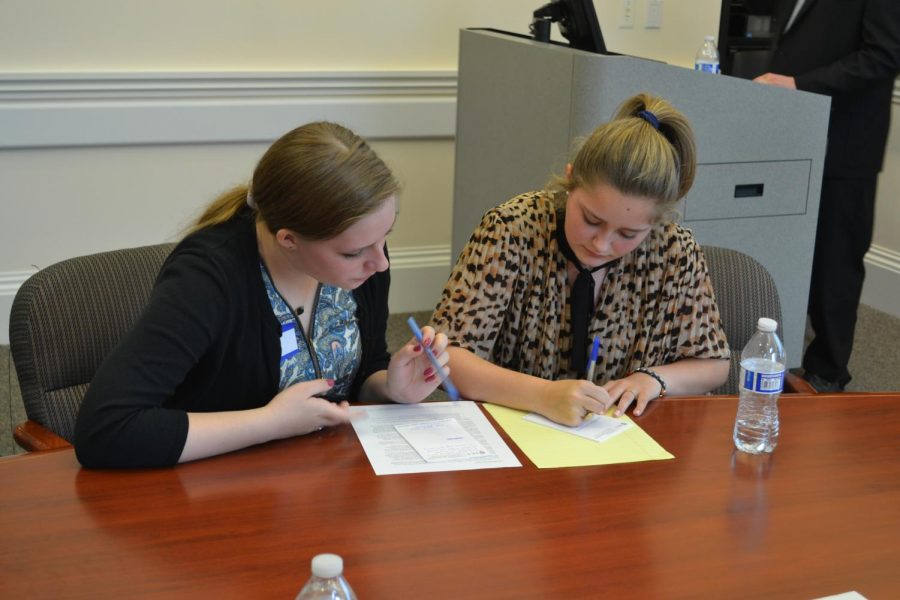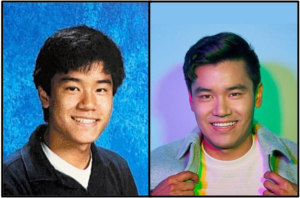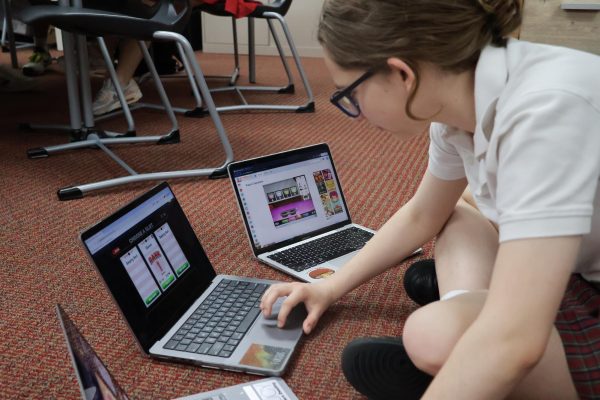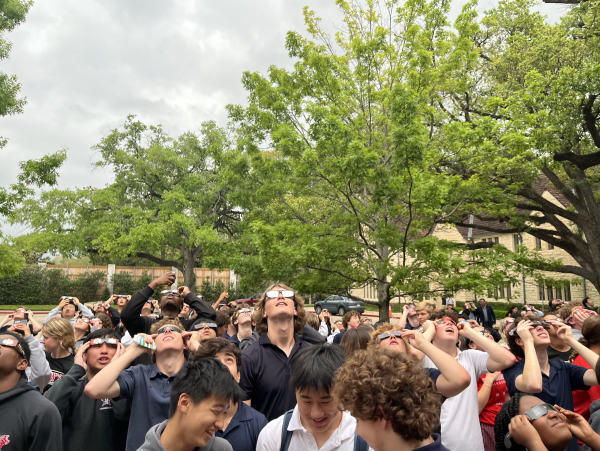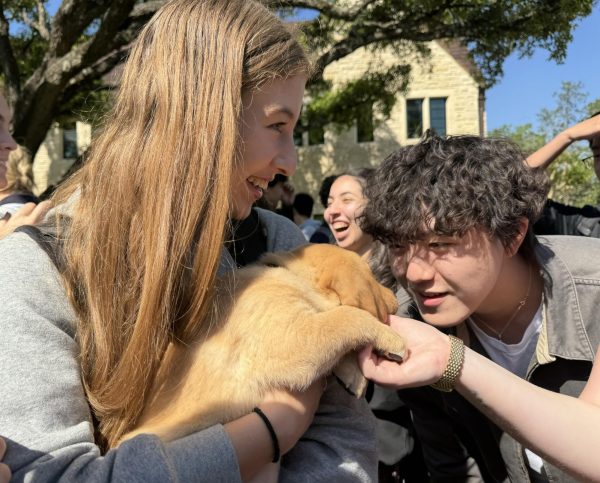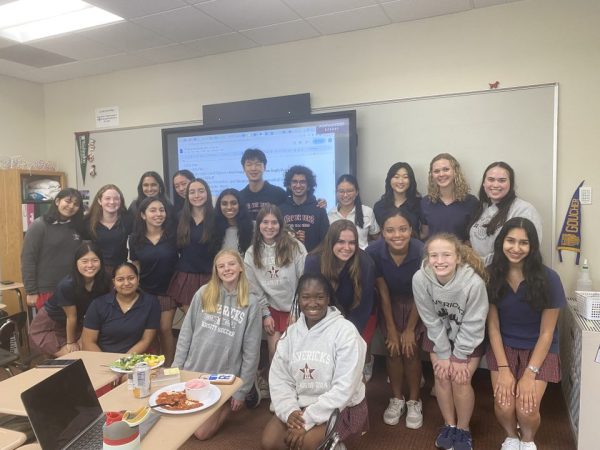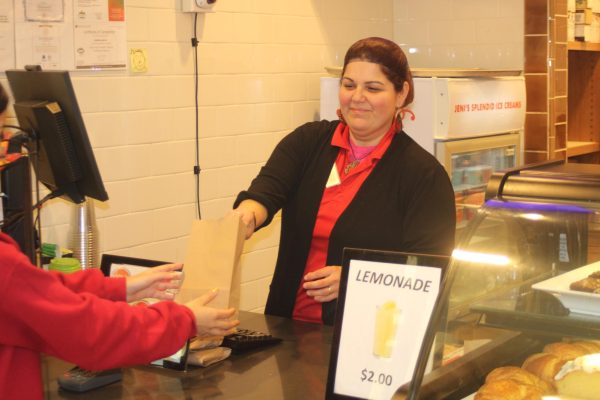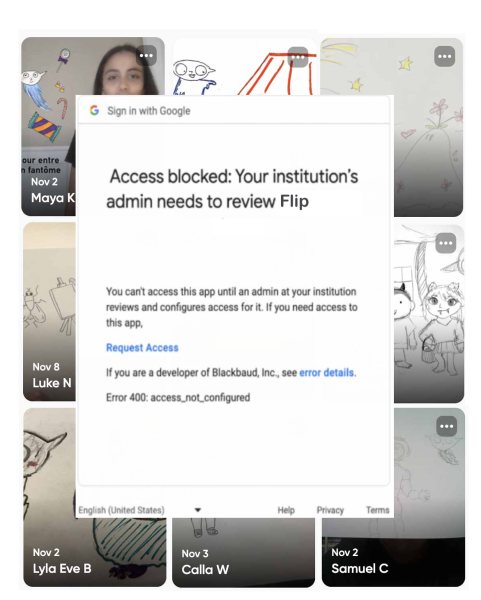Students take second place at Rice Regional Ethics Bowl
Seniors Julia Hoff and Katherine Granberry discuss one of the ethical questions.
February 28, 2019
In the midst of the Rice University campus, seniors Julia Hoff and Katherine Granberry stood alone in front of a panel of judges after senior Sakura Grant had to leave early. Despite being up against a team of five, the SJS Ethics Bowl team of only two members debated their way through the third and final round of the Ethics Bowl regional tournament.
The Ethics Bowl is a tournament during which teams representing schools all around Houston debate over ethical dilemmas. The SJS team placed second at the regional tournament, held at Rice University on Feb. 2.
“The final between HSPVA and SJS was one of my favorite moments,” Ethics Bowl faculty sponsor Tav Tavakoli said. “Our team was so pleasant and eager to understand the other team’s perspective that by the end; it was more of a discussion than a competition. Both teams were kind of edified. They had a new takeaway from the experience. It was very rewarding as a teacher and a coach to experience this because this is exactly what education should do, it should expand horizons.”
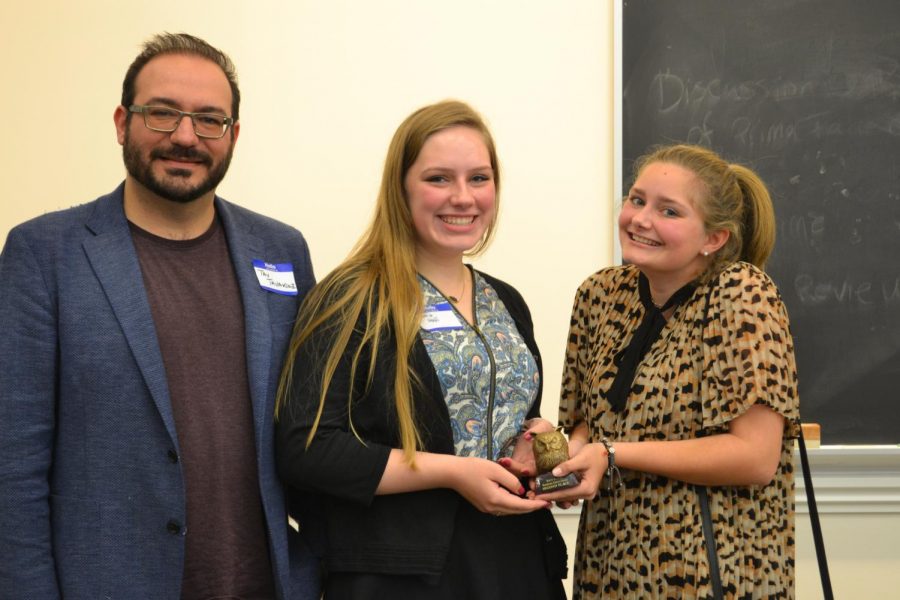
The team stands with their second place trophy.
Unlike in a debate, where there are designated opposing sides, the Ethics Bowl is a less adversarial competition. A team’s performance is judged based on their organized presentation, depth of knowledge and empathizing and addressing other’s perspectives. The “conversationalist award,” as Tavakoli calls it, endows points to the team with the best manners when addressing others’ concerns.
“They judge your willingness to listen to critiques on your argument and your readiness answer questions,” Granberry said. “They judge your overall poise and then your ability to answer questions.”
The teams are given 15 ethical dilemma case studies to review and develop their stance on. One can choose to respond to the dilemma with a consequentialist lens, where one tries to maximize the benefit for the greatest number of people. Alternatively, one can choose a categorical imperative lens, which asks the following question: if the whole world universalized their behavior, would society be better or worse because of it?
One of the questions the students answered was, “Is it ethical or deceptive for rising celebrities to pay companies to generate fake followers for them on social media?”
“The ethics bowl makes people aware of other’s point of view and considerations of other peoples,” Tavakoli said. “Not just people who have different opinions, but people who are informed by different cultural and religious traditions. It makes people aware that there are so many different factors involved in a decision and teaches people to be sensitive to those factors even though they may disagree with them.”

